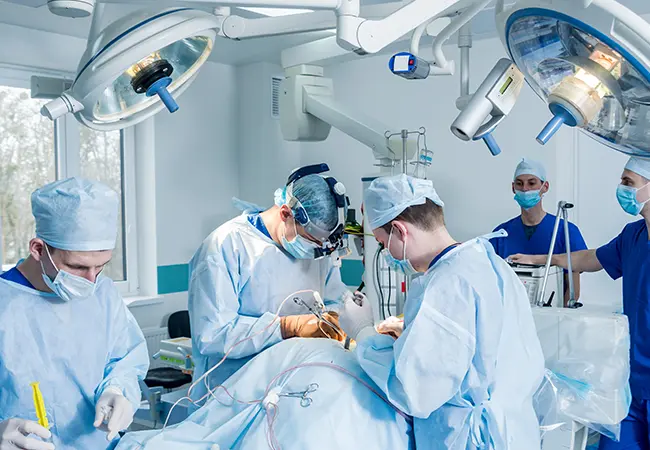- +91 99715-69210
- Ground floor OPD, Care CHL Hospital, Near LIG Square, Indore
- cancerdoctorin@gmail.com

General surgery plays an important role in the treatment of cancer. Cancer occurs as a group of abnormal cells that grow uncontrollably and can destroy surrounding tissue. The goal of surgery is to remove or reduce cancer, so as to improve the patient’s quality of life and prevent the cancer from spreading.
General surgery helps in treating cancer in several ways:
Tumor Removal: The most common surgical procedure involves physically removing the cancerous tumor. This procedure can be of different types:
Laparoscopic surgery: This involves removing the tumor through small incisions, which leads to shorter recovery time and less pain.
Open surgery: This involves removing the tumor through larger incisions, and is performed in more complex cases.
Repair of General Organs: When cancer affects the body’s organs, surgery can repair or reconstruct the affected organs. For example, breast reconstruction after breast cancer treatment.
Nodal dissection: This procedure is done when cancer has spread to the lymph nodes. Surgeons remove the affected nodes to stop the spread of cancer.
Contact tissue removal: Sometimes cancer cells spread to the surrounding healthy tissues. In such a case, those affected tissues are also removed during surgery.
Pre-surgery consultation: Before surgery, the doctor does a thorough evaluation of the patient. This includes medical history, physical examination, and necessary imaging tests (such as CT scan, MRI). The doctor gives information to the patient about the benefits and risks of surgery.
Surgery preparation: The patient needs special preparations before surgery, such as fasting, intake of medicines, and instructions for the day of surgery.
Surgery operation: Cancer surgery is usually performed under general anesthesia. Surgeons remove the cancerous tumor and surrounding tissues. This procedure can last for a few hours and its complexity depends on the type and location of cancer.
Post-operative care: After surgery, the patient is kept in the hospital for recovery. Doctors and nurses monitor the patient’s condition and provide pain management, infection control, and other necessary care.
Recovery and rehabilitation: After surgery, the patient needs recovery and rehabilitation. This includes pain management, physical activities, and mental support. The patient needs regular follow-up appointments.
Cancer elimination: Cancer can be reduced or eliminated through surgery by removing the cancerous tumor and affected tissues.
Symptom relief: After surgery, symptoms caused by cancer, such as pain and bleeding, are relieved.
Improved quality of life: After successful surgery, the quality of life improves and the patient’s normal activities become easier.
Infection: There is a risk of infection after surgery, which can be controlled with proper care and medications.
Bleeding: Bleeding may occur during or after surgery.
Surgery-related complications: such as pain, swelling, and other medical problems.
After surgery, the patient should take care of the following things:
Healthy diet: A balanced diet helps the body recover and maintains health.
Regular exercise: Light exercise can be helpful in recovery, but it should be done as per the doctor’s advice.
Mental health: Mental and emotional support, such as counseling and support groups, can help in post-surgery recovery.
General surgery is an important tool in cancer treatment that helps improve the patient’s health condition and enhance the quality of life. It is important to get proper medical supervision, lifestyle changes, and support during and after surgery. If you need cancer surgery, get complete information from your doctor and prepare a proper treatment plan so that you can recover from surgery successfully.